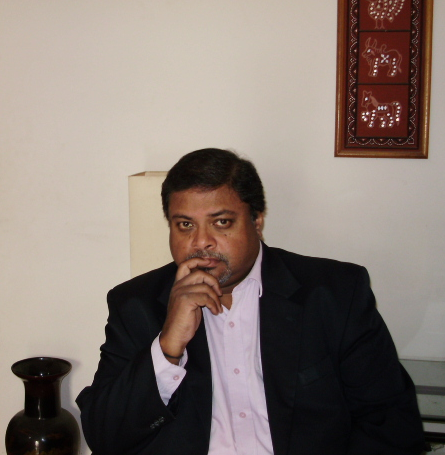Describe your company and what you do.
I started Nodiva five years ago and originally it was more related to the real estate sector: interior design, interior execution and so on. But then I dropped that business and I moved back into technology. I have more than 33 years of experience and 29 of them have been purely in the IT sector. I’ve been in that industry since the beginning, in 1977. Now what I do is consult with companies t help them with their products, business, price strategies and take them to the next level. The start-up market is huge in India and they all commit the same mistakes. I have a team of three people who do some background work for me. What I bring on the table is my long experience.
What are the specific needs of a start-up in India?
It starts basically with the idea itself. More often than not, people realize their idea has not too many takers and by that time they have blown their savings. My work starts helping them first find their market fit. Then actually going to market: it’s a huge thing, and find some traction. And the third is to price the product right because you don’t want to shoot yourself in the foot nor to leave money on the table. They also have problems to find people to invest. There is a lot of funding but there are thousands of companies too, so they want to be funding-ready and find the right investor.
What’s your biggest challenge?
To let them know that their idea might not be such a good idea.
How is the growing middle class? Is it representative of the population in India?
Millionaires and billionaires are growing but there is also this middle class which represents today 45-50% of the population. Over the years they have seen their disposable incomes rising. They have been exposed to a lot of things through TV, Internet, travelling… Their awareness has gone up. So what’s happening is that they are looking to meeting their aspirations: they want the best clothes, brand, food. Retailers are expanding, all brands are available, they want to cater to them.
Is corruption that bad and government policies as uncertain as they say?
Corruption has been there for quite some time, there’s no doubt about it. But the fact still remains that industry is growing, the GDP and the income per capita are growing. There’s a grown movement against corruption and certain acts that have been put in place to bring more accountability. Things are putting into place but it will take some time. About government policies, what we have seen in the last 15 years is this move from a single party government, at the center, to a coalition government. The regional governments are getting stronger and getting more representation at the parliament and this is good because parties have to work together.
You have been an actor in the Indian market for more than three decades. What’s the biggest change you have seen so far?
Oh my God, I’ve seen so many (he laughs). When I started trying to sell a computer 33 years ago first I had to start teaching how the word ‘computer’ was pronounced, what it did, and showing a computer, which was as big as a huge room. And from there it’s coming to your pocket today. Also I would say the telecom boom and the evolution of the digital divide. In 1995 when I was helping to settle a cellular company in India, they were first-time players in the country at that time, my biggest worry was when will be able to take a mobile phone into the hands of the guy who was coming to repair my plumbing. And believe me, today, my maid, my gardener or my driver all carry their own phones.






Be the first to comment on "‘There is a lot of funding for startups in India but competition is huge’"